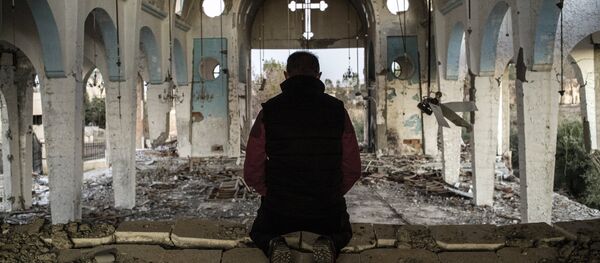"It is believed that Daesh will collapse in Syria, and possibly also in parts of Iraq, within a year," Magnus Ranstorp told Swedish state broadcaster SVT, warning that many combatants will soon return to their home countries.
According to an assessment by the Swedish Security Police agency SÄPO, some 300 Swedes traveled to Syria and Iraq to help the violent Islamists establish their self-proclaimed caliphate. The number could be higher, as it's possible that some cases were unreported.
Since this spring, both committing terrorist crimes and traveling abroad with the aim of committing terrorist offences have been punishable offences in Sweden. However, prison does not solve the problem of reintegrating returnees into society, researcher Amir Rostami, who is working against violent extremism, told SVT. Earlier this year, Rostami, who received a PhD in Sociology at Stockholm University, warned that jihadism in organized crime was an all-European trend.
According to Rostami, there are two different groups of returnees, which should be treated in different ways. The first one consists of those who actively participated in the battles, while the other one is non-combatants, who followed their husbands or parents into the conflict areas in question.
"People who have been in combat are primarily a matter for the Security Service. Should crime be suspected, it is important to ensure that these people do not fall between the cracks and receive help from social agencies to break off from the destructive environment. Additionally, care must be taken so that their traumatic experiences don't get vented out through destructive behavior," Rostami said.
By its own admission, the Swedish Security Police agency SÄPO stands prepared for a possible wave of jihadi returnees.
So far, Sweden has been struggling to keep track of its 300 jihadists. Around 40 of them have been reported dead, whereas some 130 have already returned home. The rest are suspected to be shuttling between Europe and the warzone.





